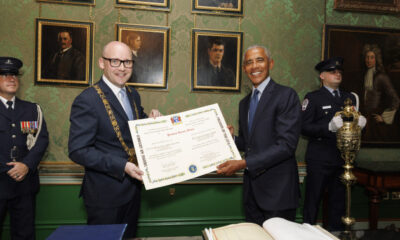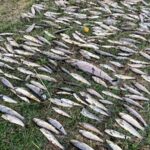Breaking News
Probe into Blackwater fish kill finds no definitive cause
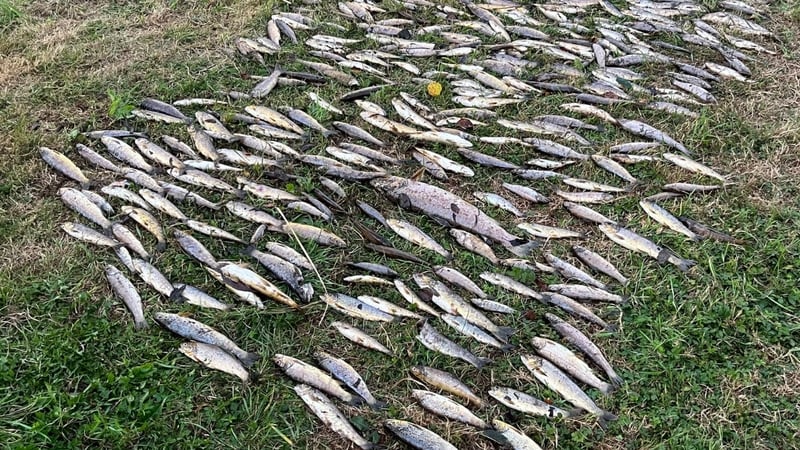
Read more on post.
The inter-agency group set up last month to investigate the cause of the large fish kill on the River Blackwater near Mallow in Co Cork in early August has concluded its work, but says it has not been able to identify the cause of the fish kill.
It is estimated up to 32,000 salmon and brown trout died in a 37-kilometre stretch of the river when an unknown environmental irritant entered the water.
This would make it the largest single fish kill on record here.
However, in its final report published this evening on the Inland Fisheries Ireland website, the interagency group said it could find no evidence to support a link between the fish mortalities and a point source of pollution, or a specific environmental insult or waterborne irritant.
The report said that no change in water quality in the affected stretch of river has been detected between 2024 and 2025.
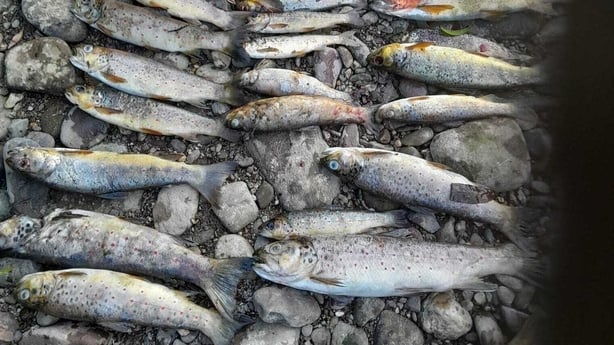
Diagnostic analyses by the Marine Institute on dead brown trout sampled from the river on 14 August had earlier found no evidence of systemic disease.
More recent analysis of brown trout for presence of chemicals, pesticides and heavy metals also did not identify any such possible irritant.
The report says the waterborne agent that caused the fish kill had a likely entered the river Blackwater around the 5 or 6 August and the first fish mortalities were observed 72 hours later, on 9 August 2025.
However, it says the pollutant dissipated quickly, rendering it undetectable in water samples and fish tissue samples.
There was no evidence of any mortalities of protected species such as otter or freshwater pearl mussels.
Neither were there any mortalities among bird species, nor indications that livestock health and the food chain from primary production was affected by the fish kill incident.
The report also details the outcome of 85 different investigations and inspections in relation to water quality issues along the affected stretch of river but could find no causal link to the fish mortalities.
It found no evidence of a chronic water quality problem, either before or after the fish mortalities.
This suggests, according to the report, that the cause of the mortalities was a short-term pollution event.
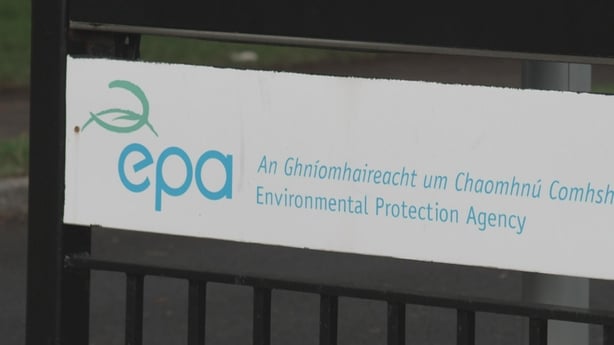
The EPA investigated regulated sites in the River Blackwater catchment, including industrial facilities, wastewater treatment plants and drinking water plants but it could establish no causal link between these activities and the fish mortalities in the River Blackwater.
20 complaints were received from members of the public in respect of the incident and were followed up by the EPA but again, no causal link with the fish kill could be established.
Cork County Council also inspected twenty light industrial and commercial sites within the catchment, comprising all businesses licensed under Section 4 of the Local Government Water Pollution Act as well as other commercial operators.
14 investigations of agricultural activities within the catchment were also carried out. But in all cases, a causal link to the incident could not be established.
In addition, Inland Fisheries Ireland itself carried out 198 habitat inspections, and 52 repeat habitat inspections, at 47 locations along the affected stretch of river.
It conducted macroinvertebrate sampling at 10 different sites. It also sent fish samples to Germany, via Eurofins Environmental Ltd, to be tested for a broad suite of 900 chemicals, pesticides and heavy metals.
Yet despite all these investigations, nothing was found.
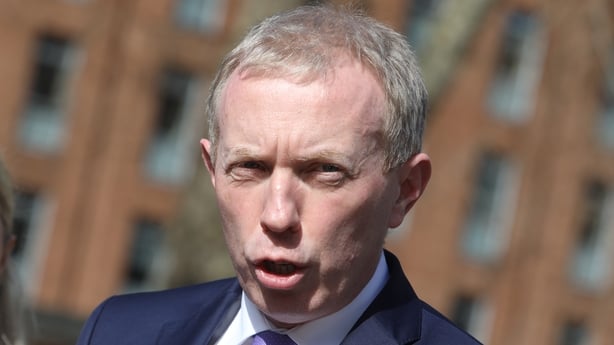
Minister of State with responsibility for Fisheries and the Marine, Timmy Dooley, has welcomed the publication of the summary report from the inter-agency group, which he says provides a clear account of the response to, and the investigation into, the incident.
He said: “The extensive fish mortalities that occurred on the River Blackwater represent a serious impact to local fish stocks and have had a deeply negative impact on surrounding communities.
“Although the evidence points to this being a short-term pollution event, Inland Fisheries Ireland estimate that up to 32,000 salmon and brown trout mortalities may have occurred.
“The investigation has now concluded. In this instance, a definitive cause could not be identified despite the extensive and significant investigation by members of the inter-agency group.
“The report does assert that that a waterborne irritant likely entered the river up to 72 hours before the first mortalities were observed, at a point most likely upstream of the mortalities initially observed by IFI. It dissipated quickly, resulting in it being undetectable in subsequent water samples and fish tissue samples.
“The findings in the report do give reassurance that this was a short-lived event, with no evidence of ongoing pollution risks. I want to emphasise that the investigation was exhaustive and involved extensive sampling, testing and monitoring – by multiple State agencies.”
Breaking News
Dublin Zoo to offer ISL-interpreted videos for visitors
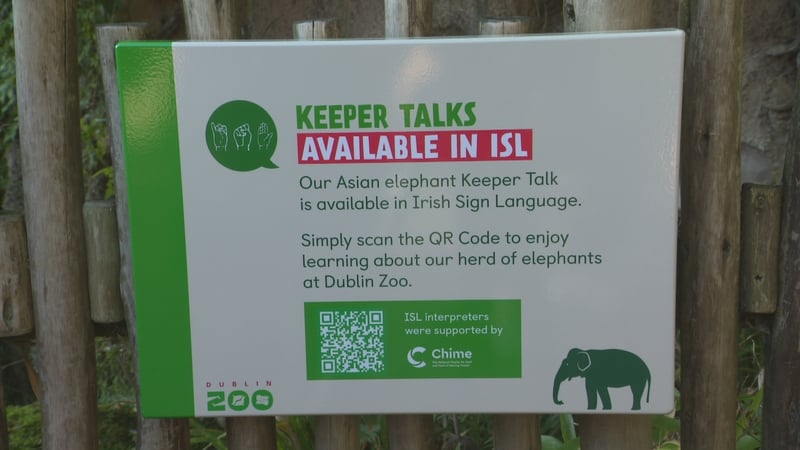
This post was originally published on this site.
Dublin Zoo, in collaboration with Chime, the national charity for deaf and hard-of-hearing people, has begun to offer Irish Sign Language (ISL) interpreted videos for visitors through QR codes.
The initiative aims to offer a greater level of accessibility to more people.
Speaking at the launch today, Director of Dublin Zoo, Dr Christoph Schwitzer, believes the new resource will make the zoo a more inclusive place for all visitors.
“Here at Dublin Zoo, we’ve got a Diversity, Equity, Accessibility and Inclusivity (DEAI) working group and they always look for opportunities such as ‘how can we make the zoo even more accessible to all the people who come here?'”
“ We have these ‘keeper talks’ that we have been having for many, many years and people love them. People really like to know and like to learn about our animals. So we thought, ok, one opportunity would be actually to translate our keeper talks into Irish Sign Language,” Mr Schwitzer said.
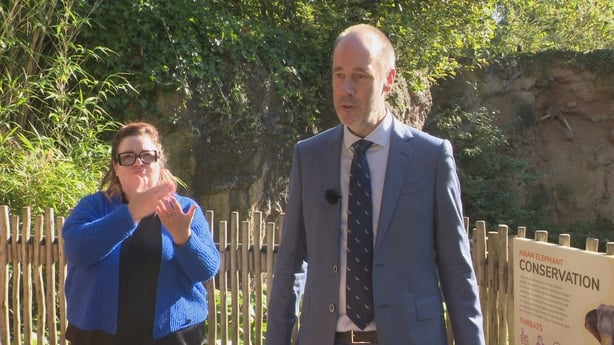
“In the past, accessibility was all about wheelchair accessibility, but it’s much more than that now,” he added.
ISL-interpreted videos are now available for six different keeper talks at various locations across the zoo, such as the habitats of the Asian Lions, the Southern White Rhinos, the Asian Elephants, the Red Pandas, the Humboldt Penguins and the California Sea Lions.
The zookeeper talks provide detailed insights into the animals and their habitats, allowing ISL users to learn directly from the zookeepers in their preferred language.
For many adults, children and families of the deaf and hard-of-hearing community who attended today’s launch, the excitement went far beyond seeing the elephants up close and personal.
It was about finally being able to access information in a public setting: something that, until now, hasn’t always been possible, according to parent and ISL user, Emma Cahill, whose daughter Bonnie is deaf.
“I was recently at a national event a while ago and there was no ISL interpreter there, which I found very disheartening as a parent of a deaf child,” she said.
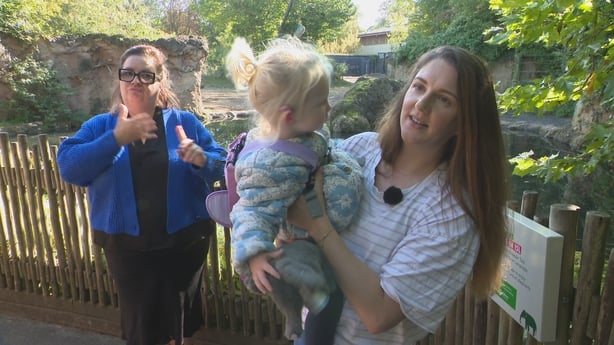
“ISL should be readily available. There shouldn’t even be a question why it’s not available, it just should be there and on all of our national platforms,” Ms Cahill added.
Chime’s Director of Advocacy and Communications, Danielle McLaughlin, believes that as one of Ireland’s official languages, ISL should be provided in all public spaces.
“A lot of people do prefer Irish Sign Language videos. They do prefer the interpretation. Texts can be quite difficult to interpret so it is much easier for people to experience it.
“If it’s their first language and you’re using Irish Sign Language all the time, like you and I would speak English, then it’s much easier to understand and it’s a much more enjoyable experience,” Ms McLaughlin explained.
Breaking News
YouTuber becomes first person jailed over posting videos of asylum seekers online
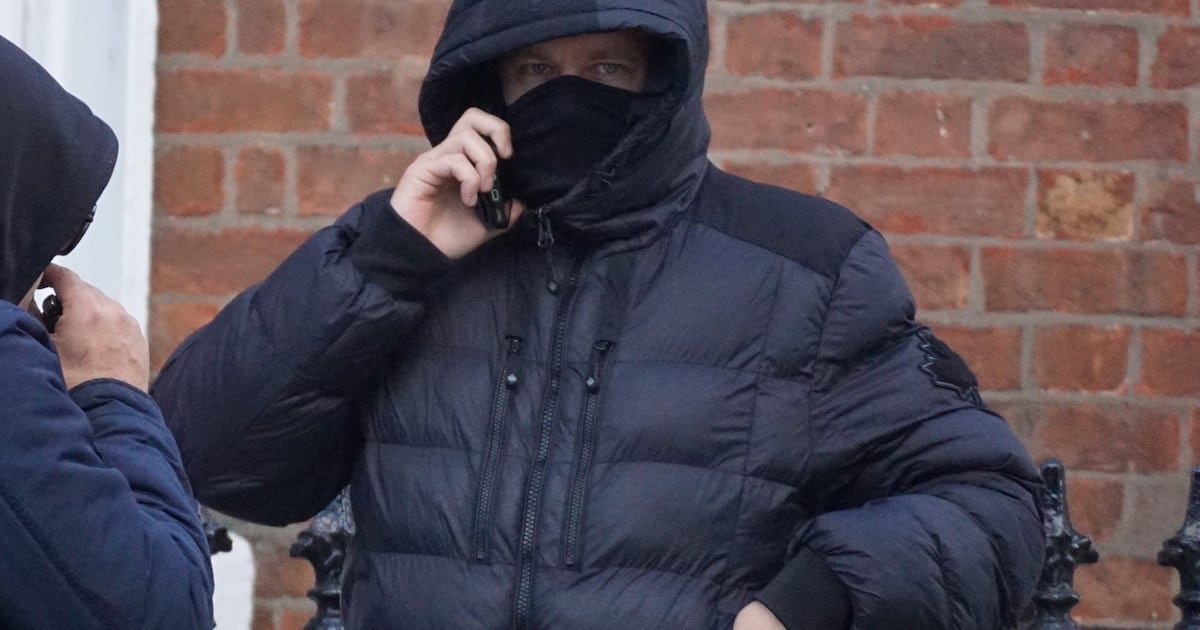
Read more on post .
A self-described citizen journalist and YouTuber has become the first person to be jailed, in a landmark case, over online posts which risked identifying asylum seekers in Ireland.
Paul Nolan (36) stood outside the St John’s House International Protection Accommodation Services (IPAS) centre in Tallaght, on August 22nd and 26th last year, and questioned teenage boys, a young woman and three middle-aged men who were staying at the facility.
Nolan, a father of three, goaded applicants, saying, “In Ireland, you have no right to privacy,” and he posted videos of his interactions on his YouTube channel.
The four clips revealed their faces. Captions included: “Time to document these people ourselves” and “Cheeky fella these economic welfare scammers”.
He questioned a man who said he was from Gaza about why he was here and not fighting in his own country.
The community employment scheme worker, from Mount Eagle Square, Leopardstown, Dublin 18, pleaded not guilty at Dublin District Court to engaging in threatening, insulting and abusive words or behaviour, under the Public Order Act.
International protection applicants have the legal right to anonymity. Nolan also denied four counts, under Section 26 of the International Protection Act 2015, of publishing information likely to lead members of the public to identify a person as an applicant.
Judge John Hughes noted that this was the first time a prosecution had been brought for this offence, which is punishable by a 12-month sentence.
Nolan was given a 10-month sentence but had the final three months suspended with conditions. The videos must also be taken down.
Judge Hughes described Nolan’s conduct as repeated, premeditated and targeted.
He said Nolan used “a tissue of lies, wrapped in a shroud of pseudo-citizen journalism”.
Sentencing Nolan, he said his conduct was “a disgraceful, glorious display of rudeness, hyena-like behaviour, and ignorance of the people involved”.
Nolan attempted to convince the court he had, in his role as an untrained citizen journalist, learned about a demonstration outside the building and went to investigate for his YouTube channel.
He said he knew the building had previously been used by Revenue, and that undocumented, unvetted men of military age had moved in; however, he maintained that he was unaware it was an IPAS centre.
He claimed that he learned from a comment by Taoiseach Micheál Martin and from RTÉ News that 80 per cent of asylum seekers were economic migrants.
Witnesses from Palestine and Jordan gave evidence.
The father of two boys filmed by the accused said his sons were aged 14 and 17 at the time. Video evidence showed one of them was threatened by Nolan, who said he would break his nose because the teen had elbowed him out of his way.
He told an applicant approaching the centre, “I already got your face, no need to put your hand up,” and mimicked their accents. He narrated his videos, once saying: “These are dangerous people we have walking the streets of Tallaght.”
Nolan already had 47 prior convictions, including public order charges, 19 for drug offences and he had also been jailed previously for six months for dangerous driving.
Breaking News
Palestinian president tells UN ‘we will not leave our lands’ and condemns Hamas attack
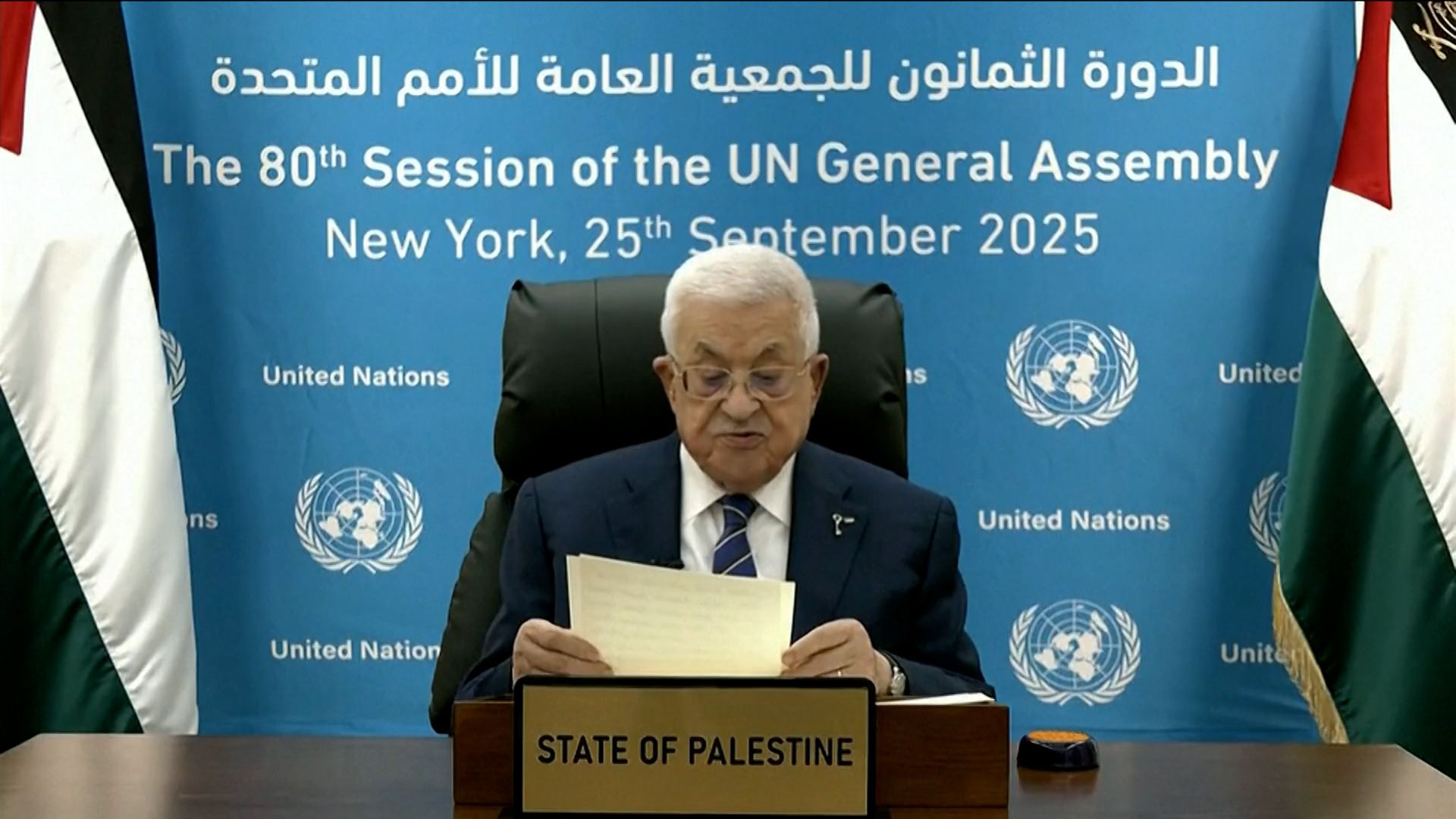
Read more on post .
Palestinian President Mahmoud Abbas has told the United Nations General Assembly “we will not leave our lands” in the face of Israeli attacks.
He told the summit that the Palestinian flag “will fly high in our skies as a symbol of dignity, steadfastness, and being free from the yoke of occupation”.
“No matter how long the suffering lasts, it will not break our will to live and survive, the dawn of freedom will emerge,” he said.
Mr Abbas was speaking virtually in New York after the US blocked his entry to the country for the annual summit, and said the people of Gaza “have been facing a war of genocide, destruction, starvation and displacement”.
He told the summit that Israel has “imposed a stifling siege on an entire” population and destroyed more than 80% of homes, schools, hospitals, churches, mosques, facilities and infrastructure.
“It will be recorded in history books and the pages of international conscience as one of the most horrific chapters of humanitarian tragedy in the 20th and 21st centuries,” he added.
‘We do not want an armed state’
Mr Abbas vowed to work on a peace plan for Gaza with US President Donald Trump, Saudi Arabia, France and the United Nations after the world body overwhelmingly endorsed a seven-page declaration that aims to advance a two-state solution and an end to the war.
“Despite all that our people have suffered, we reject what Hamas carried out on October 7th – acts that targeted Israeli civilians and took them as hostages – because such actions do not represent the Palestinian people nor their just struggle for freedom and independence,” Mr Abbas said.
“We have affirmed – and will continue to affirm – that Gaza is an integral part of the State of Palestine, and that we are ready to assume full responsibility for governance and security there. Hamas will have no role in governance, and it – along with other factions – must hand over its weapons to the Palestinian National Authority.
“We reiterate that we do not want an armed state.”
Mr Abbas also reiterated a series of points to the UN, which included the need for an “immediate and permanent end” to the war in Gaza and the need for unconditional entry of humanitarian aid to UN organisations.
Read more from Sky News:
Former French president sentenced to five years in prison
‘Professional actor’ using airport drones ‘to spread fear’
The Hamas attack on Israel on 7 October 2023 triggered the war in Gaza. Hamas killed 1,200 people and Israeli figures suggest around 251 were taken hostage.
According to local health authorities, more than 65,000 people – mostly civilians – have been killed in the war in Gaza. Its figure does not differentiate between civilians and fighters.
Israel has rejected claims that it is carrying out a genocide in Gaza, arguing it is defending itself and fighting against Hamas, not the Palestinian population.
Attention turns to Netanyahu
On Friday, Israeli Prime Minister Benjamin Netanyahu will speak at the UN General Assembly in New York after a week that has seen widespread condemnation of the situation in Gaza and calls for peace.
Mr Netanyahu will then meet Mr Trump at the White House on Monday.
Speaking on Thursday while hosting Turkish President Recep Tayyip Erdogan, Mr Trump said he believes “we’re close to getting some kind of deal done”.
He also reiterated his call to “get the hostages back”, adding that there are around 20 living hostages and “38 or so dead hostages” in Gaza.
-
Culture2 days ago
Taylor Swift’s new cinema outing generates more than €12million in just 24 hours
-
Politics3 days ago
European Parliament snubs Orbán with vote to shield Italian MEP from Hungarian arrest
-
Culture2 weeks ago
Life, loss, fame & family – the IFI Documentary Festival in focus
-
Health3 days ago
EU renews support for WHO’s Universal Health Coverage Partnership
-
Culture2 months ago
Fatal, flashy and indecent – the movies of Adrian Lyne revisited
-
Culture3 days ago
Twilight at 20: the many afterlives of Stephenie Meyer’s vampires
-
Environment6 days ago
Key oceans treaty crosses threshold to come into force
-
Culture1 week ago
Farewell, Sundance – how Robert Redford changed cinema forever










